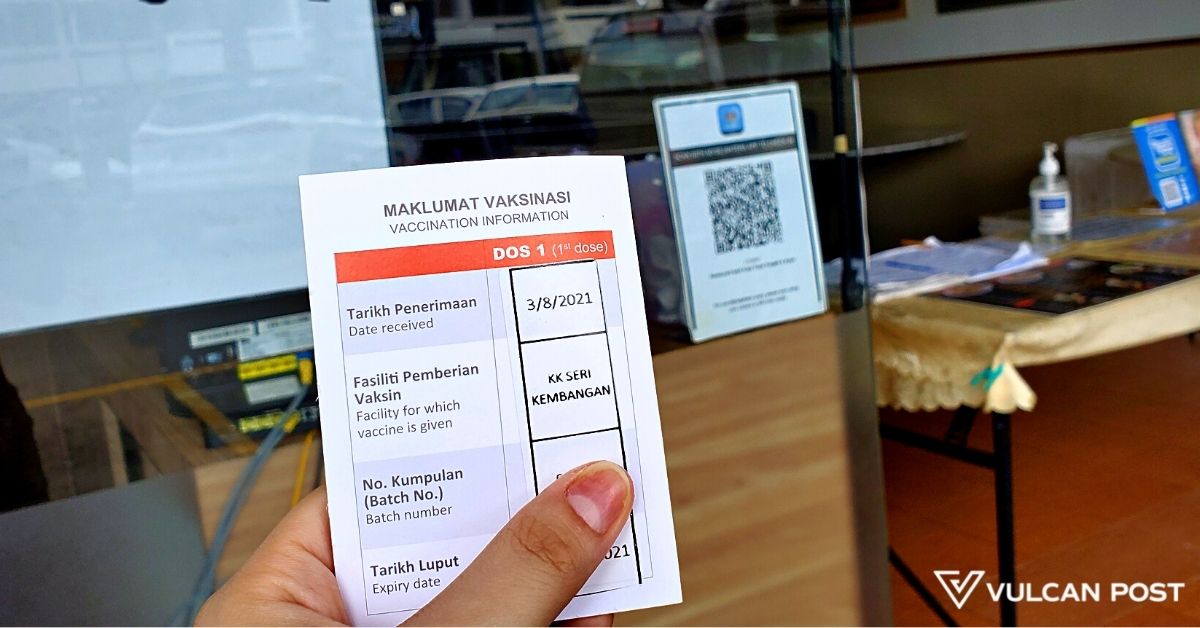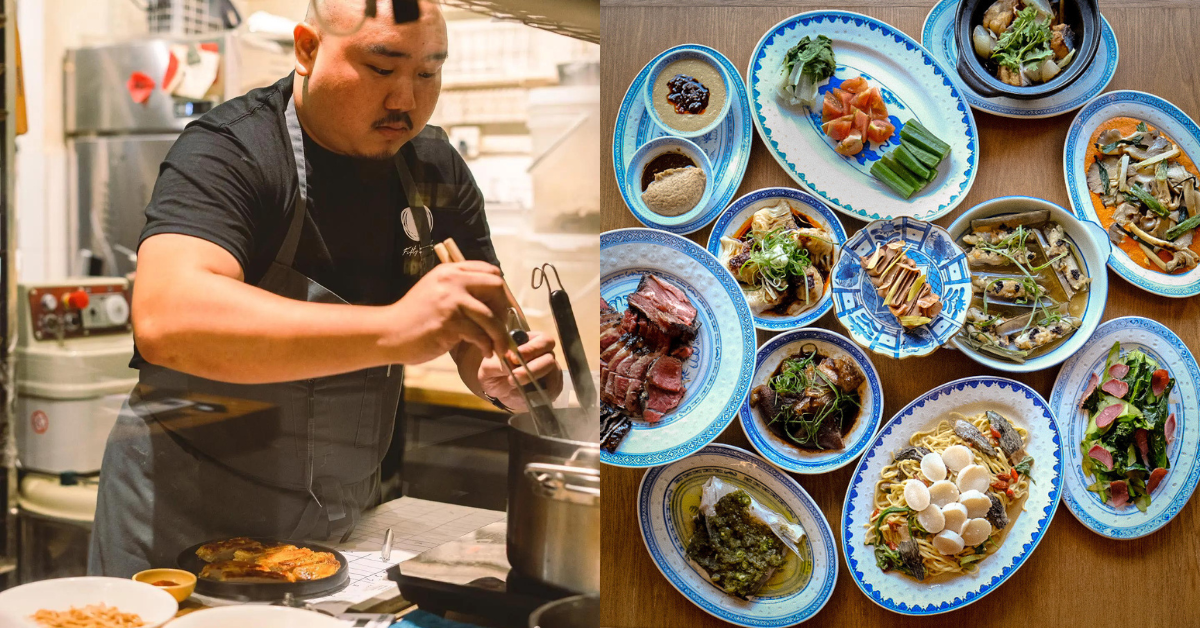Vaccine passports can grant those who’ve received 2 doses of the COVID-19 vaccinations a return to some level of normalcy in carrying out social activities. Across Europe, vaccine passports in the form of digital health passes are already being used to allow entry into hotels, theatres, museums, and more. For Hong Kong, bars and restaurants have permitted social gatherings, albeit with some limits.
Malaysia’s SOP relaxation essentially provides a glimpse into what a vaccine passport for social activities could look like. For those in low-risk states, fully-vaccinated people can enjoy restaurant dine-ins and attend prayers at houses of worship.
In a way, this could be seen as a pilot test for what a vaccine passport rollout would allow. While this deal can cushion the impact of a further economic downfall, it brings up some challenges for businesses once restrictions are further relaxed.
Disclaimer: This article discusses a vaccine passport in relation to reviving the local economy in essential and non-essential sectors. It does not go into the subject of international travel.
1. Blamed for discrimination, or becoming a hotbed for infections?
According to a survey, it would seem that people are generally optimistic about a vaccine passport. 69% of Malaysians were highly supportive of having a vaccine passport for entering shops and offices, while 82% of them want it present to enter large public venues.
For businesses, it could open up revenue streams for sectors that have brought in no income for a year and seen closures of outlets. Vaccine passports can help stimulate the economy by allowing people to gather in small groups as well as relax and socialise at these premises. However, SOPs like social distancing and mask-wearing must still be implemented (when not eating or drinking).

The question now is whether both essential and non-essential businesses should implement a vaccine passport regulation. Either way, it will be a struggle.
Essential services are needed by everyone, and if these providers limit entry to those who are fully vaccinated, it would be discriminatory against those who are unable to get vaccinated due to legit health reasons.
Non-essential businesses are in a slightly different position. They don’t provide necessities, but they offer enrichment activities which many would love to do after being stuck at home for so long.
It may be easier for these businesses to implement a strict vaccine passport regulation since they won’t be stripping the unvaccinated of their necessities, though it may mean shutting out potential guests and lowering overall revenue.
But the danger of not implementing a vaccine passport regulation for both essential and non-essential businesses points to the same risk: becoming a potential hotbed for infections.
Ideally, vaccine passports should be required by essential and non-essential businesses to lower the overall risk of infection in their premises. Yet this brings up another issue: who will be strictly regulating this implementation to ensure SOPs are still being followed?
2. Self-regulation, or government intervention?
Based on the aforementioned current SOPs, eateries are encouraged to limit their capacity for diners to 50%, provide good ventilation, or simply move their seating outdoors. These are some loose proposals by the government so far, with no fines or stringent guidelines in place.
Whether or not the government will leave the implementation of a vaccine passport up to business owners themselves is unknown, but there are arguments to be made for and against this.
If the government decides to make this regulation compulsory for all businesses, there will be a guaranteed loss in in-person sales as those who aren’t fully (or at all) vaccinated will be alienated. This will likely hit non-essential businesses like entertainment and recreational centres the hardest, since they struggle to transition their services online.

Fully vaccinated customers will see more benefit with this move since it increases their confidence in a premise’s safety.
On the other hand, leaving it up to businesses to decide for themselves will mean placing immense trust in them to ensure their SOPs are sufficiently observed. If a vaccine passport programme is not consistently implemented across businesses in the nation, this means the overall risk of serious infections is higher.
Business owners who implement the regulation would then have to worry about whether or not their fully vaccinated customers would be a potential carrier of COVID-19 if they’d recently been to a premise that didn’t require a vaccine passport for entry.
Finding a balance in offering customers a sense of normalcy yet ensuring their safety is an ongoing challenge that businesses overseas are already facing, for example, in Hong Kong’s bars.
3. A risk of letting in fully vaccinated yet high-risk individuals
The COVID-19 vaccinations are meant to protect one against serious disease and hospitalisation. Taking the shot does not give one immunity against contracting or spreading the virus.
Therefore, a vaccine passport is still limited in its capacity to reduce infections. Even if a vaccine passport is required by businesses to allow entry to customers, there’s still the risk that they may let in fully vaccinated asymptomatic spreaders.
This is something that’s currently near-impossible to overcome with current contact tracing technology, since it still heavily requires honesty and constant updating by users to function properly.
If businesses want to minimise this risk, they will have to come up with further regulations to vet customers for entry. With some Malaysians already reluctant or refusing to comply with simple SOPs, however, this could be a nightmarish endeavour.

We’re still a far cry from herd immunity with under 40% of the Malaysian population fully vaccinated, so perhaps these extra regulations could take some examples from the Hotspot Identification for Dynamic Engagement (HIDE) system the government previously proposed.
With HIDE, premises are encouraged to take heightened pre-emptive measures. It includes checking the risk status of MySejahtera check-ins and disallowing entry to individuals marked as high-risk. COVID-19 screenings of workers and enhanced crowd control measures are also encouraged.
At the moment, it’s unclear what the results of the HIDE system are. But in any case, restricting the entry of those who are fully vaccinated yet are high-risk due to close contacts may just slow down, if not prevent, the spread of the virus.
4. An unsustainable long-term solution
As we’re in a public health emergency, high levels of uncertainty are present with new procedures continuously being introduced by law enforcement.
Vaccine passport measures should be temporary as they’re meant to help people achieve some sanity and hopefully return to normal once the public health goals are reached. That was stated by Dr Voo Teck Chuan, a Professor in Biomedical Ethics in an interview with RICE Media.
Thus, for Malaysia to execute vaccine passports and help the country recover, a clear roadmap needs to be put in place so these measures don’t carry on longer than they should. It could look like the country’s National Recovery Plan (NRP) which has set goals for when each state will move into the next phase depending on daily recorded COVID-19 cases.
If there is no clear plan and end in sight, businesses will struggle to even plan for recovery, let alone actually recover once our vaccination goals are reached. Already, many businesses are stuck in limbo about whether to shut down or stay open and suffer losses.
Vaccine passports need to come to an end as infection rates reduce, or they will kill businesses and risk segregating people in the long run.
Is Malaysia ready for vaccine passports?
Malaysia’s daily positive cases are hitting 5 digits by the day despite ramped-up vaccination efforts. Our healthcare system is falling apart, with hospital bed shortages reported in the Klang Valley, Melaka, Penang, Kedah, and Sabah.
“What worries me right now [about the easing of SOPs] is that several states like Johor, Kedah, Penang, and Terengganu are also showing up with more than an upward and fast-rising number of infection,” said infectious disease expert Dr Adeeba and member of the World Health Organization (WHO) Science Council to CodeBlue.
If there will be a vaccine passport rollout, it should be with test groups in lower-risk states first. The response to it must be monitored, and the results should be taken into consideration for further plans.
The closest thing we have to what a vaccine passport regulation would be is the current relaxation of SOPs announced by the government, and it’s too early to pass judgment on its effectiveness.
One thing for sure is that the government has to consult with businesses or relevant associations in business sectors to come up with a plan (vaccine passport or not) that will benefit not just customers, but the businesses themselves.
A lot of focus has been on the people’s happiness and needs, but without the businesses to offer them services and products in the first place, arguing for more SOP relaxations or a vaccine passport that doesn’t take providers’ concerns into account will be moot.
Featured Image Credit: Vulcan Post









